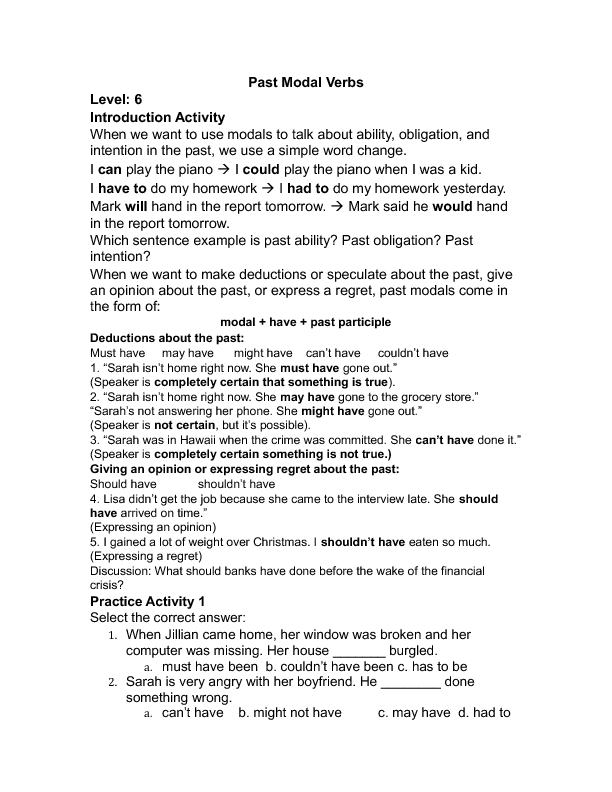
There's not much chance that I 'll finish this essay tonight. There's a good chance that it 'll snow this week. The government 's likely to call an election soon.Īli 's unlikely to be invited to the party. I 'm sure that you 'll do well in the interview.Īre you sure that you won't be available? Almost sure There's no way that my boss will give me the day off. There's no chance that we 'll ever win the lottery. He 's certain that he 'll get here on time. He 's bound to feel nervous before his driving test. We can also use other expressions such as be bound to and be likely to, or verbs such as think and doubt. However, we don't usually use could not to talk about the future. When you are not sure, we can also use may, could and may not. He hasn't studied much, so he might not pass the exam. I might go to the party, but I'm not sure yet. We 'll probably finish the project by tomorrow. Robots definitely won't replace all human jobs. People will definitely work from home more in the future. We can use modal verbs (such as will, might, may or could) and adverbs (such as probably and definitely) to show how sure we are. We can show how certain we are about the future by using modal verbs and other expressions. Grammar B1-B2: The future – degrees of certainty: 1 It probably won't rain later according to the weather forecast. She's likely to say yes if you ask nicely. I'll definitely be at the meeting, don't worry. I thought I saw Adnan this morning but it couldn't have been him – he's in Greece this week.ĭo this exercise to test your grammar again.Look at these examples to see how we can express different degrees of certainty about the future. We use can't have and couldn't have + past participle when we think it's not possible that something happened. Could have is also possible in this context but less common. Police think the suspect may have left the country using a fake passport.


I think I might have left the air conditioning on. We can use might have or may have + past participle when we think it's possible that something happened. The door was locked and nothing was broken. Who told the newspapers about the prime minister's plans? It must have been someone close to him. We use must have + past participle when we feel sure about what happened. This page focuses on making deductions about the past. The modal verb we choose shows how certain we are about the possibility. We can use modal verbs for deduction – guessing if something is true using the available information. Modals – deduction (past): Grammar test 1 How did she fail that exam? She can't have studied very much. We don't know for sure that Alex broke the coffee table.

Look at these examples to see how must, might, may, could, can't and couldn't are used in the past.Īn earthquake? That must have been terrifying!


 0 kommentar(er)
0 kommentar(er)
